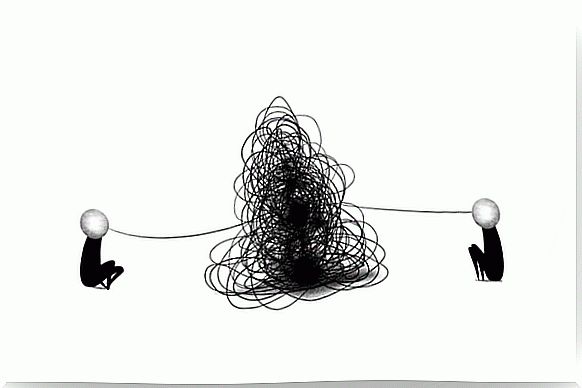Psychologists Can Offer Valuable Help, But They Do Not Perform Miracles

Psychologists play a very important and necessary role in society. However, there are still several unfounded beliefs, myths and expectations that obscure the true purpose of consulting these professionals. The most common and erroneous view of going to therapy is to believe that psychologists work wonders. But this could not be further from the truth. Psychologists do not perform miracles.
Many people feel disappointed when they turn to these professionals. But one must make the following choices when choosing a professional psychologist. First of all, you need to find the psychologist who is best for you. You also need to find the therapy that best suits your needs. On the other hand, it is important that you have an open mind and willingness to work during the treatment. You are the one who must strive to reach your goal. The psychologist is only there to help.
Psychologists do not perform miracles, they push us
It is true that psychologists do not perform miracles, no matter how much we want them to do so. You will also not sit on a stretcher and expect everything to be solved with a magic pill. There will be no anesthesia and your participation is required. In addition , people may not want to go back to a psychologist. More than anything, this is because psychologists make us uncomfortable. They ask difficult questions, encourage the patient to see things with different eyes, or make them see that they are responsible for what happens to them. Furthermore, they force the patient to take responsibility for their actions. Psychologists offer valuable help, but they do not perform miracles.

Many people go into a psychologist’s office and complain and feel like the victim. However, they soon feel that the therapist is trying to take away the protection of their victim role. For example, if a person goes to therapy because their partner is unfaithful, and the psychologist asks them, “And why are you still in that relationship?” they can take it badly. They can respond as if the answer was clear: “Because I love them.”
It can be uncomfortable
As therapy progresses, however, people may become resistant to therapy and reject the “non-help” they think the therapist is giving them because they do not initially hear what they want to hear. Maybe they wanted a magic formula for the partner to stop being unfaithful or approving of their own behavior. When faced with the perception that the most feasible alternative may be to end the relationship, it can cause the person to take out the frustration and rejection of the therapist.
Many times, when a patient goes to a psychologist, they want someone to tell them they are right, or give them a magic formula to solve the situation. However, this is not realistic and is often a response to fear and uncertainty. Psychologists can help with grief, but can not bring the person the patient has lost back to life.
What is our role as patients in therapy?
It is important to be aware not only of the role of the psychologist, but also of the patient. First, as we have already said, psychologists do not perform miracles. They are there to listen, provide tools and open up possibilities when the patient sees everything with a narrow focus.

A psychologist will never tell us what to do or make decisions for us. However, it is possible that we may need to do self-esteem exercises, work on our insecurities, or overcome some fears. This means getting rid of the obstacles that prevent us from achieving our goals. This is what psychologists do. They can provide us with the necessary tools to feel better about ourselves, increase our self-esteem and self-confidence, help us confront fear and improve how we relate to others.
This does not mean that we have to work on making decisions in therapy. There are many different effective strategies for this. The psychologist in this sense can serve as a board to sort out ideas or to dive into different hypothetical situations. But they will not tell us what to do, and in many cases they will not tell us what they would do in our place, just because they are not in our shoes.
We have to do the job
In any case, this does not make your role less valuable and important. Thanks to this guiding help, the decision we make will probably end up being easier or less painful. We are the ones who must take the step. We know what to do, we are aware of what will make us better. We just have to make a decision and get it started. With psychology, we can get the necessary tools to do that.








